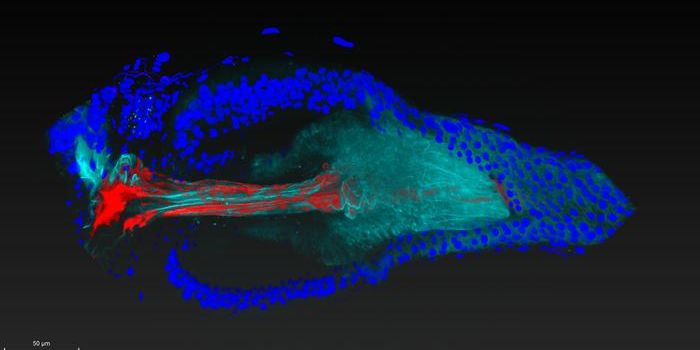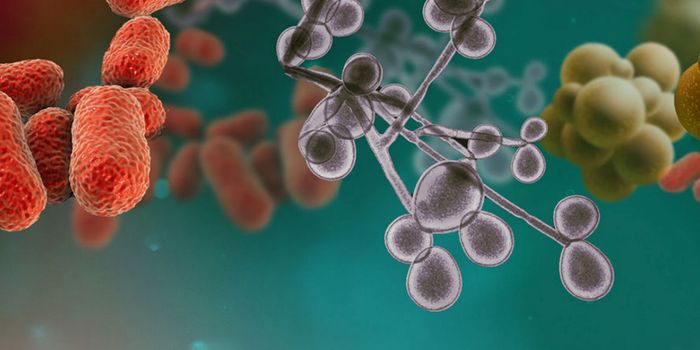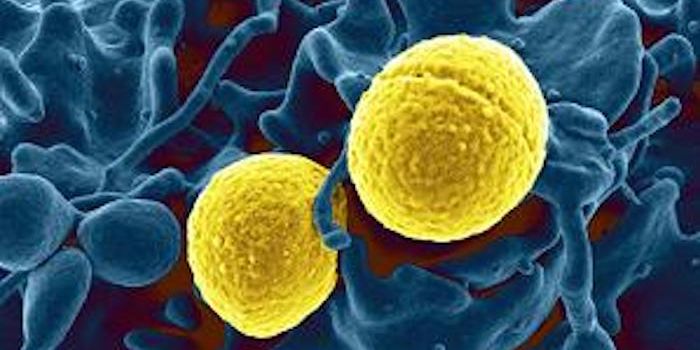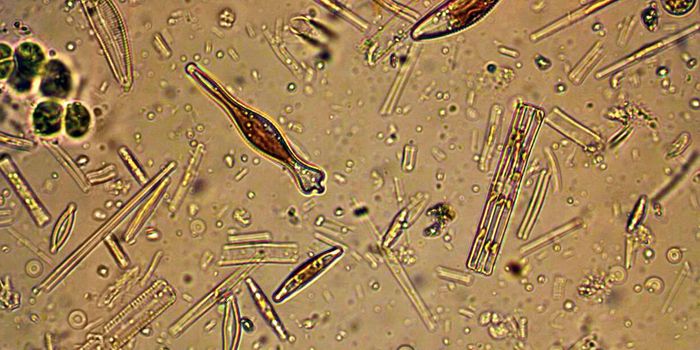Dengue Virus Makes Mosquitoes Bite More Frequently
There are parasites that can change the behavior of their hosts to make a more beneficial outcome for the parasite. Researchers have now found that when mosquitoes are infected with dengue virus, they begin to bite the mammals they're attracted to more frequently, which can significantly increase the transmission of the virus. The findings have been reported in the Proceedings of the National Academy of Sciences (PNAS) by an international team of researchers; they may help scientists control dengue more effectively.
Dengue viruses infect an estimated 400 million people every year around the world. While many cases are asymptomatic or cause mild symptoms like rash, fever, and aching, they can be devastating to some. About one in twenty dengue patients have a severe case, which may cause internal bleeding and death.
The virus has been difficult to control, especially because creating a vaccine is complicated by several factors. For example, there are four types of dengue virus, which can all cause disease. Another problem is that when a person develops antibodies against dengue, it can lead to antibody-dependent enhancement, a phenomenon in which antibodies can actually promote infection. Stopping the transmission of dengue may be one way to reduce infection. Mosquitoes are a crucial link in the infection chain, but observing their feeding behaviors to find ways to interrupt them presents other challenges.
"As very thorough analysis of feeding behavior is not feasible in fieldwork, it was important to build a lab model of mosquito feeding to inspect it closely," noted study co-author Associate Professor Adam Claridge-Chang of Duke-NUS.
In this study, the researchers developed a method for videotaping the blood-feeding behaviors in mosquitoes that were, or were not, infected with dengue. Computational tools were used to analyze the high-resolution videos that were generated. The researchers saw specific activities and patterns, and compared them between the mosquitoes. That revealed that dengue-infected mosquitoes were more attracted to mammals. However, they were not as good at hitting a blood vessel, so they had to insert and reinsert their probe until they hit one. That means they bit their targets more, increasing transmission of the virus into the skin of their host.
"This sheds new light on the many ways the virus hijacks its vector to be transmitted," said corresponding study author Dr. Julien Pompon of the University of Montpellier, France. "The study will help advance our understanding of the epidemiology of dengue and better tailor disease control strategies."
Now, the scientists want to learn more about how the virus is causing these changes in the mosquitoes' behavior, and what biological mechanisms might be at work.
Sources: Duke-NUS Medical School, PNAS









